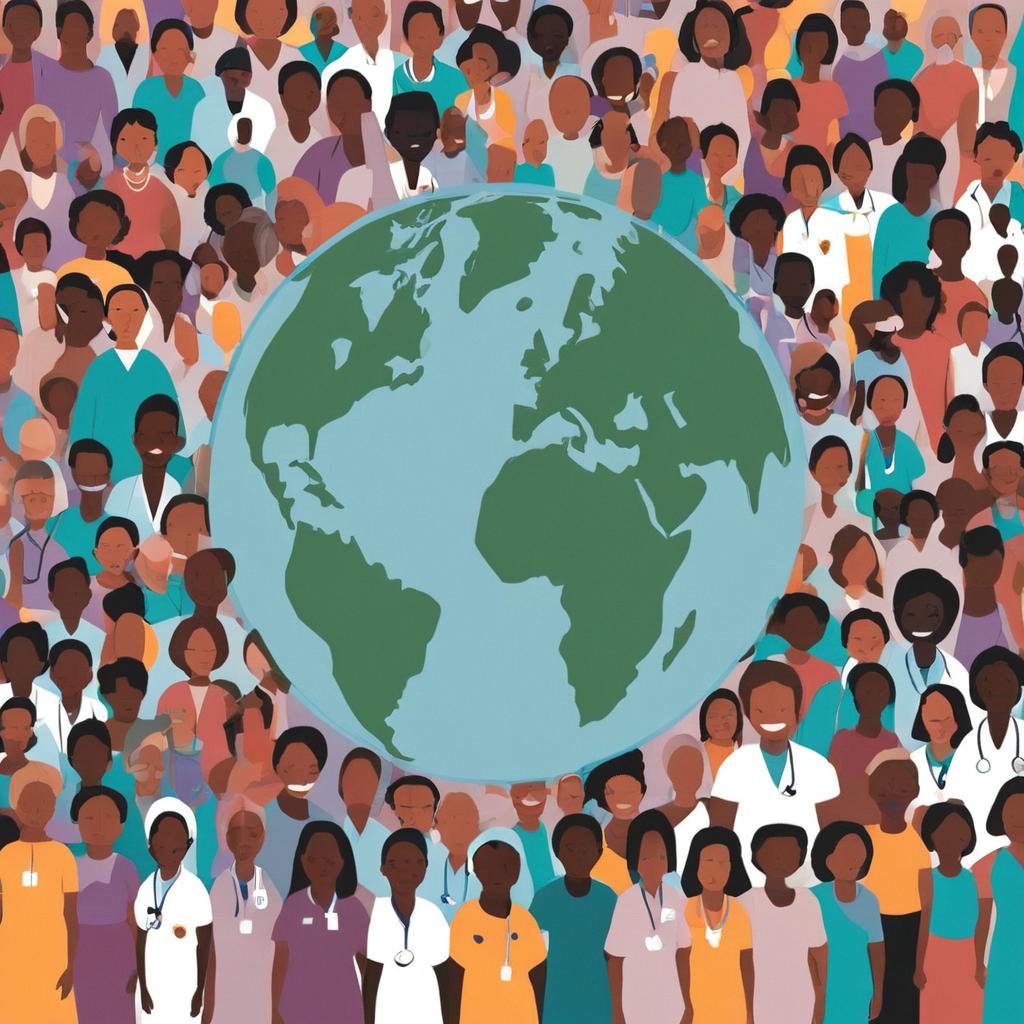Uniting for Equity on World Health Day

World Health Day, observed annually on April 7th, serves as a poignant reminder of the importance of health and well-being on a global scale. As we navigate through the complexities of modern life, it becomes increasingly crucial to address the various challenges that affect our physical and mental health. This editorial aims to shed light on the significance of World Health Day and emphasize the need for collective action to prioritize global wellness.
Global Health Divide
Across the globe, disparities in health outcomes persist, with marginalized communities bearing the brunt of these inequities. Factors such as socioeconomic status, gender, ethnicity, geographical location, and access to healthcare services significantly influence an individual’s health outcomes. In many parts of the world, vulnerable populations face barriers to essential healthcare services, leading to preventable illnesses, disabilities, and premature deaths.
Addressing Health Inequities
Achieving health equity requires a multifaceted approach that addresses the underlying social, economic, and environmental determinants of health. Governments, healthcare providers, civil society organizations, and international agencies must collaborate to implement policies and initiatives aimed at reducing health disparities. This includes ensuring universal access to quality healthcare services, promoting health education and awareness, and addressing social determinants such as poverty, education, and housing.
Role of Universal Health Coverage
Universal Health Coverage (UHC) plays a pivotal role in advancing health equity by ensuring that all individuals have access to essential health services without facing financial hardship. By implementing UHC schemes, countries can enhance healthcare access, improve health outcomes, and mitigate the financial burden of healthcare costs on individuals and families. Moreover, UHC fosters social inclusion and contributes to overall societal well-being.
Promoting Mental Health
In addition to addressing physical health disparities, it is imperative to prioritize mental health on the global health agenda. Mental health conditions affect millions of people worldwide, yet stigma, discrimination, and lack of access to mental healthcare services remain significant barriers to treatment and support. World Health Day serves as an opportunity to raise awareness about mental health issues, promote understanding and acceptance, and advocate for accessible and affordable mental healthcare services.
Harnessing Technology for Health Equity
Advancements in technology offer promising opportunities to improve healthcare access and delivery, particularly in underserved areas. Telemedicine, mobile health applications, and digital health platforms have the potential to bridge geographical barriers, expand healthcare reach, and empower individuals to take control of their health. However, it is essential to ensure that technological innovations are accessible, affordable, and culturally appropriate to effectively address health inequities.
Community Engagement and Empowerment
Community engagement and empowerment are integral to achieving health equity, as local communities possess invaluable insights and resources to address their unique health needs. Empowering communities to actively participate in decision-making processes, health promotion initiatives, and advocacy efforts fosters a sense of ownership and ensures that interventions are tailored to local contexts. By amplifying community voices and promoting grassroots solutions, we can drive sustainable improvements in health outcomes.
Also Read: 6 Delicious Fasting Recipes for Everyone
Verdict
As we commemorate World Health Day, let us reaffirm our commitment to building a fairer and healthier world for all. By addressing health inequities, promoting universal health coverage, prioritizing mental health, harnessing technology, and empowering communities, we can create a future where every individual has the opportunity to thrive and lead a fulfilling life. Together, let us work towards a world where health is not a privilege but a fundamental human right.
Q1: What is the significance of World Health Day?
A1: World Health Day holds immense significance as it serves as a global platform to raise awareness about pressing health issues and mobilize action to address them. It provides an opportunity for individuals, communities, healthcare professionals, policymakers, and organizations to come together to advocate for health equity, promote universal health coverage, and foster dialogue on key health challenges facing the world.
Q2: How can individuals contribute to promoting health equity on World Health Day and beyond?
A2: Individuals can contribute to promoting health equity by advocating for policies and initiatives that prioritize access to quality healthcare for all, raising awareness about health disparities in their communities, supporting organizations working to address social determinants of health, and actively participating in efforts to empower marginalized populations. Additionally, practicing empathy, inclusivity, and solidarity can help foster a culture of health equity in society.
Q3: What role does universal health coverage (UHC) play in advancing health equity?
A3: Universal health coverage (UHC) is essential for advancing health equity as it ensures that all individuals have access to essential healthcare services without facing financial hardship. By providing access to healthcare based on need rather than ability to pay, UHC helps reduce disparities in health outcomes and promotes social inclusion. Implementing UHC schemes can contribute to achieving the goal of health equity by ensuring that everyone, regardless of their socioeconomic status, receives the care they need to lead healthy lives.
Also Read: Spiritual Significance of Fasting in Navratri
Q4: How can technology be leveraged to address health inequities?
A4: Technology can be leveraged to address health inequities by expanding access to healthcare services, particularly in underserved areas. Telemedicine, mobile health applications, and digital health platforms can bridge geographical barriers, connect individuals with healthcare providers, and facilitate remote consultations and monitoring. Additionally, health information technologies can empower individuals to manage their health, access health information, and engage in preventive care. However, it is crucial to ensure that technological solutions are accessible, affordable, and culturally appropriate to effectively address health inequities.











